Highlights
Meet a CQTian: Angelina Frank
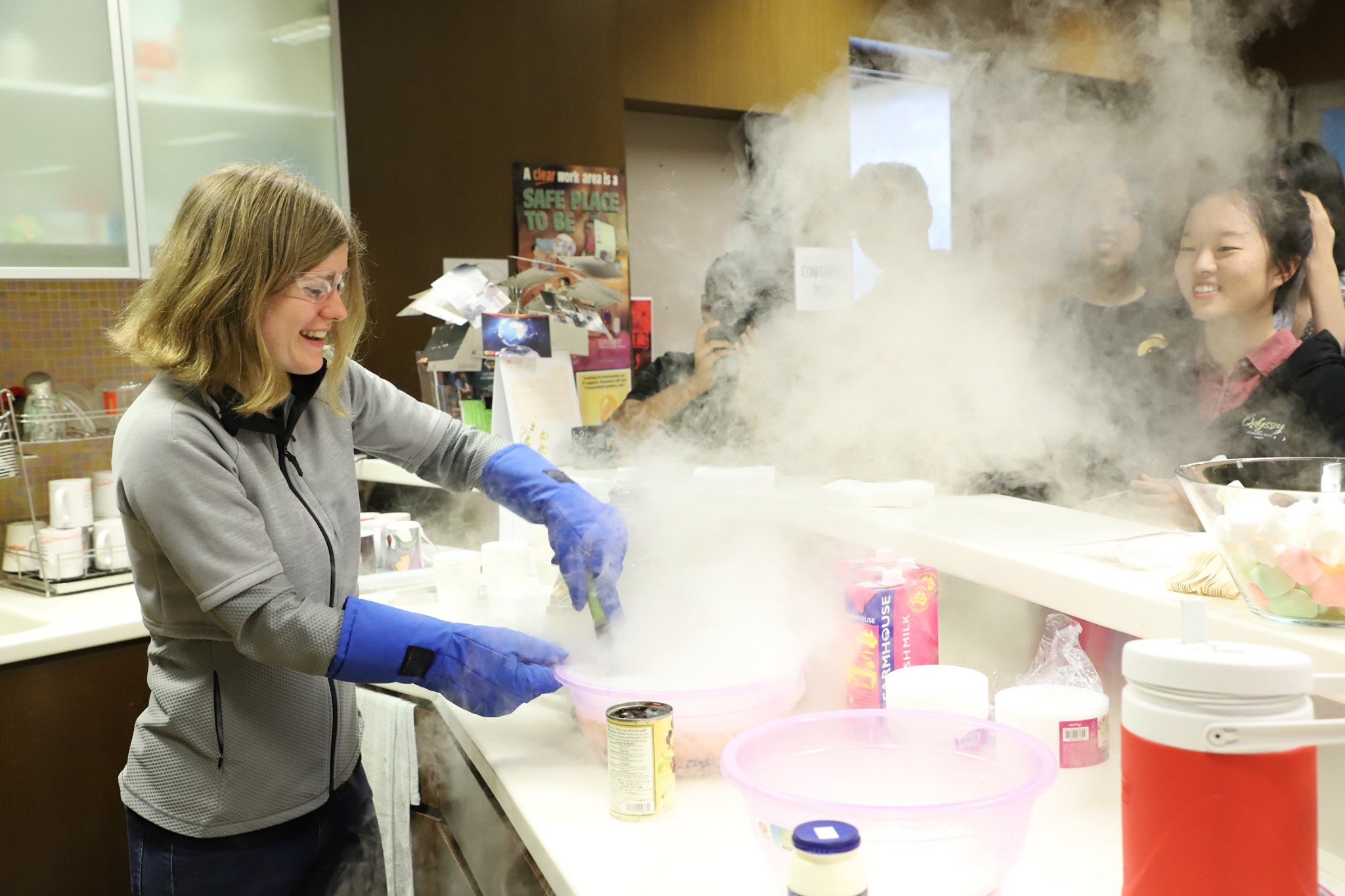 One extracurricular activity that Angelina enjoys is planning outreach events. She is part of the organising committee for Q Camp, CQT’s outreach summer camp, and is pictured making ice cream with liquid nitrogen during Q Camp 2019.
One extracurricular activity that Angelina enjoys is planning outreach events. She is part of the organising committee for Q Camp, CQT’s outreach summer camp, and is pictured making ice cream with liquid nitrogen during Q Camp 2019.
Who are you?
I am a second-year PhD student at CQT, originally from Hamburg, Germany. Before joining CQT, I completed my undergraduate degree in chemistry in Germany in 2016, followed by a two-year master’s degree in Tokyo, Japan also in chemistry, although geared more towards photonics.
What are you working on?
I joined a project in Alexander Ling’s group in the team of James Grieve where we explore ways to build photonic networks in flexible polymers. One direction in which we are expanding this work is the integration of novel optically active materials. I love how the project is placed at the interface of material science and (quantum) optics.
What is a typical day like for you?
I arrive in the morning, leave in the evening, and usually fill the space in between these two events with a range of activities that bring my project forward. Some tasks require time and thought, others concentration, and then others physical work. Activities include fabrication, simulation, design, experimental characterisation, logistical issues, occasional presentations, correspondence with collaborators, literature exploration, study time, discussions, and occasional coursework. I also enjoy extracurricular activities – planning outreach activities and coordinating student events for example. I like the challenge of organising all these different aspects of a PhD.
What do you enjoy about the work?
Academic insight, responsibility, creative freedom, the dimension of project management, the feeling of a direct connection between your work and the associated rewards, making connections with other people to achieve common goals… I also truly enjoy the personal atmosphere at our institute!
How did you know that you wanted to become a scientist?
I remember learning about molecules back in middle school. How can water have such different properties from hydrogen when one is a partial constituent of the other? Finding an answer to that question seemed like something fundamental, reshaping the ways in which we could perceive, interact and connect with the world around us. I also remember how, in one economy lesson, scientists could not be easily sorted into any type of workforce sector. Science seemed unbounded, intrinsically interdisciplinary, and somehow decoupled from the rest of the world’s workings yet affecting and possibly benefitting all of them. It was my favourite subject besides philosophy.
What got you interested in quantum and what made you decide to pursue it?
I am fascinated by how quantum physics plays with the idea of certainty, the question of to what systems this idea applies and in what way it scales up. The transition from classical to quantum explanations of physical phenomena uncovers a new world of connections.
Any advice for students looking to pursue a PhD?
If there is something you truly want to work on but are in doubt whether you can do it or not, I fared better when not letting that doubt decide. Also allow yourself to be happy or hopeful about positive results or little things. This notion of the next failure lurking behind the corner is difficult to shake off, but energy can be drawn from seeing the positive side of things.
If you were not a scientist, you would be...?
Not working as a “scientist” perhaps doesn’t mean that one isn’t a scientist. Whenever we try to improve a craft, we need experimentation, creativity and persistence. This to me, embodies the spirit of a scientist. Institutional science itself might not even always be the purest form of this philosophy.
But in terms of other professions, I love concept art and illustration: It is a bit like physics, but with more forgiving and malleable laws – equally frustrating when it doesn’t work out, and possibly yielding surprising results. I like how one can directly translate an idea into something communicable, and how a thought can transform the simplest of materials into items of value.
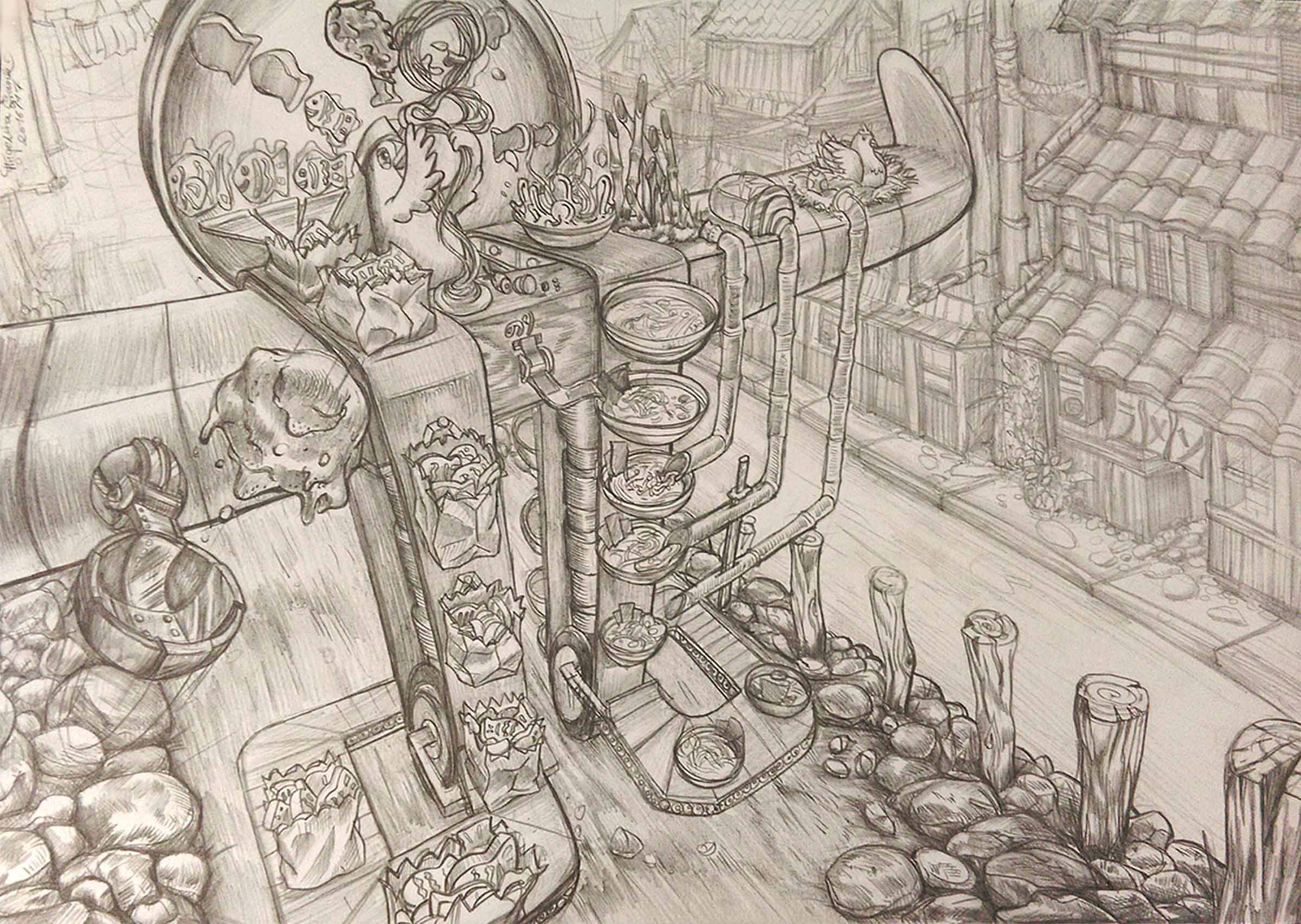 “The almost-flying streetfood machine”, an artwork by Angelina. Image credit: Angelina Barbara Frank.
“The almost-flying streetfood machine”, an artwork by Angelina. Image credit: Angelina Barbara Frank.
What are your hobbies and interests outside of work?
I like trying out new things. Studying in a foreign country made city and culinary exploration become much more important than it was back home. I also like drawing, illustration, and street art. In Germany, I enjoyed trying out water- and board-sports, reading plenty of fantastic literature (now replaced by walking-compatible audiobooks), playing Ultimate Frisbee and, occasionally, video games. I also have to admit to, against environmental conscience, being a big Formula 1 fan. I am also volunteering as a fire marshal this year.
Would you like to share anything about yourself that other people might be surprised to know?
Actually, there are two of me. I have a twin sister in Ireland meddling with soundwaves and exploring the emergence of music from cultural contexts (“World Music”). There is so much to learn from that!
The question might arise, but we actually really do not know if we are fraternal.
Learn more
Related Stories
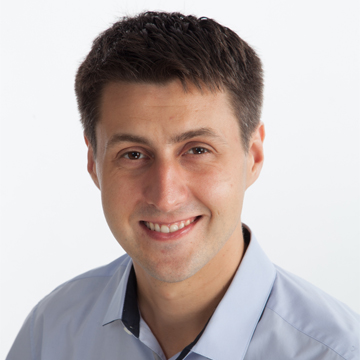 | Meet a CQTian: Kyle Arnold December 16 2020 |
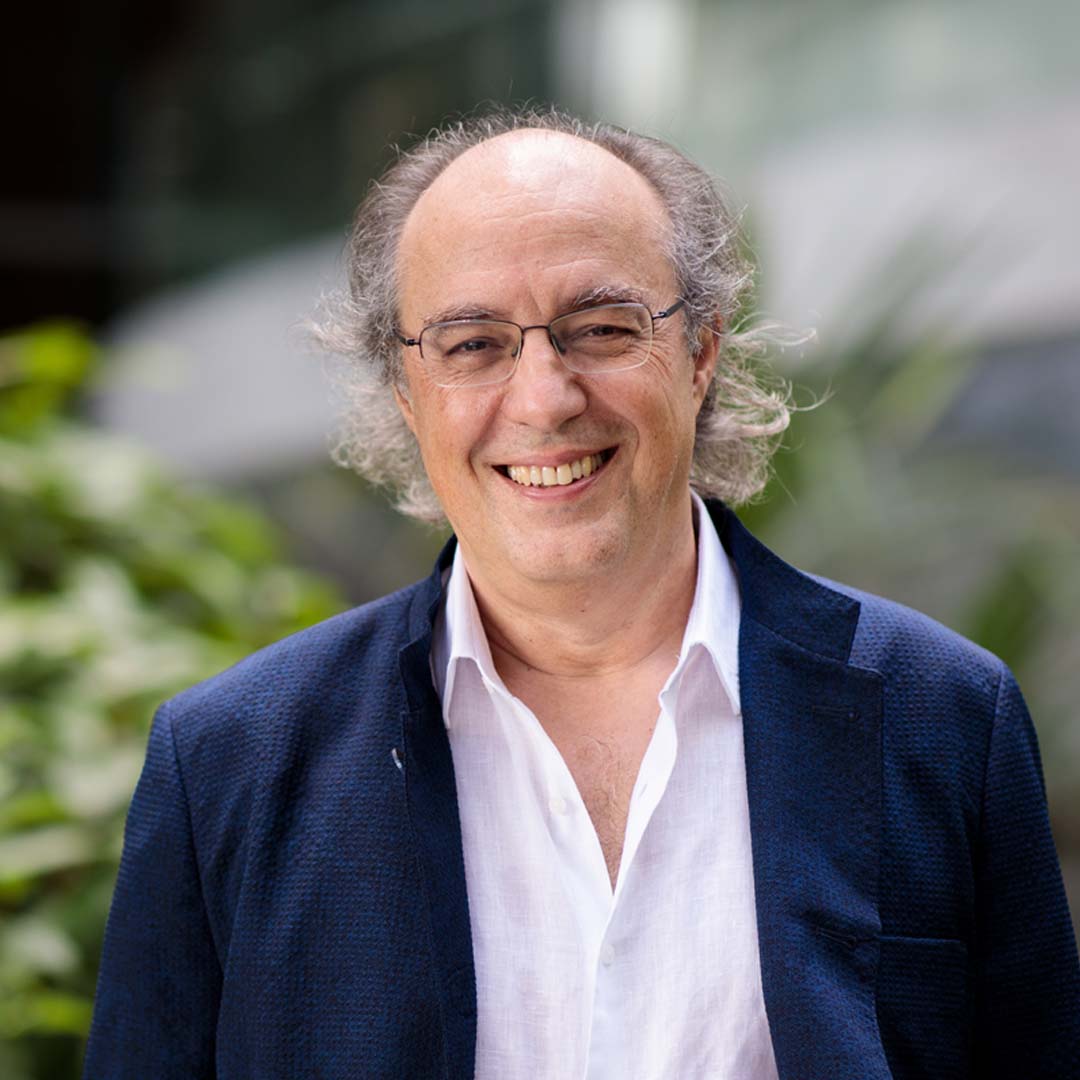 | Meet A CQTian: José Ignacio Latorre April 29 2021 |
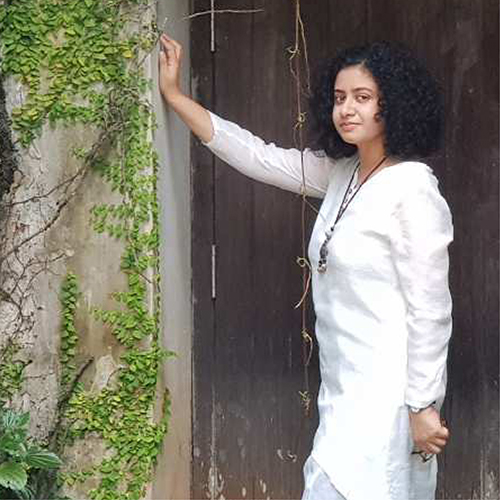 | Meet a CQTian: Ayesha Reezwana December 02 2020 |






